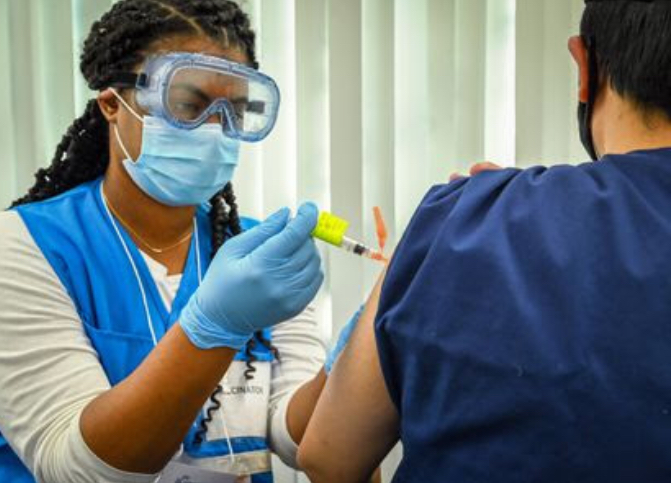Is the COVID vaccine mandate ethical?
October 18, 2021
We are finally getting closer to the society we were before the spread of COVID that ruined so many lives worldwide. As more and more people get vaccinated, the number of cases has gone down significantly and we are finally returning that sense of normality we once had.
But, COVID has also divided our country over the controversy of the vaccine mandate that many places have been upholding, especially now that Los Angeles has passed one of its strictest vaccine laws. This controversy brings up a dire question: is the COVID vaccine mandate the right step back towards normalcy?
Starting November 4, people aged 12 and older in Los Angeles will be required to be fully vaccinated in order to be allowed inside public indoor places. Mayor Eric Garcetti signed the mandate saying, “Vaccinating more Angelenos is our only way out of this pandemic, and we must do everything in our power to keep pushing those numbers up.” Violations of this new rule will result in fines.
This new policy resulted in protest. One of the Councilmen themself, who had opposed the mandate had said that it was “punitive toward businesses” (Lee). Businesses can be given a warning for a first offense but fined up to $5,000 for repeated violations of the rules, starting on November 29.
Not only this, but as of January 2022, California students and staff within schools will be required to be fully vaccinated. It applies to all students, kindergarten and above, as soon as the vaccine becomes approved for all ages.
“(We) believe that vaccines are essential to ensuring that our students, school workers, and communities are safe. We know that in-person instruction is best for our students and that vaccines are the most important safeguard to prevent serious illness from COVID-19 infection,” says Jeff Freitas, president of the California Federation of Teachers.
According to Carolyn Jones from EdSource.org, “COVID vaccines will be among the roster of 10 other vaccinations, such as polio, mumps and tetanus, that the state requires students to receive before starting school.” There are exceptions for medical and religious reasons, but it will soon be required for a child to have eleven vaccines to be able to enter school.
With that, it is evident that the vaccines that are required for kids to have are extremely rare in the US. For example with Polio, the number of cases has gone down 99% since 1988. It’s rare to even hear of someone with polio in the United States.
So there is no doubt that as soon as the vaccine becomes approved for younger age groups, it will become a part of the roster for required vaccinations.
Despite the high number of people that have already gotten vaccinated, many people remain unvaccinated even after the many campaigns for the vaccine. This leads government officials to make the “necessary” precautions, according to Council President Nury Martinez.
So, people can argue all they want over these new changes that continue to happen in the country, whether it is for or against the vaccine, but one thing is for sure, getting vaccinated is a step toward returning to the society we were prior to the pandemic.































